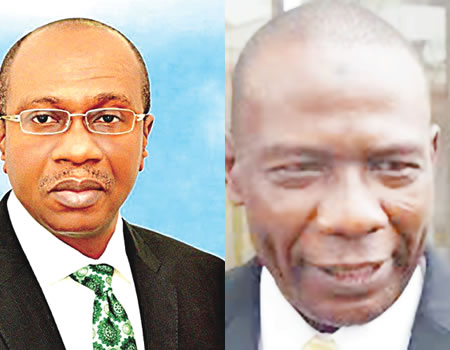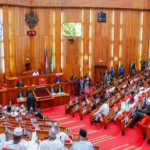The World Bank has projected a decline in migrant remittances as a consequence of COVID-19 pandemic. With earnings from these remittances being a major source of foreign exchange for the country, Bureaux De Change operators are agitating for the liberalization of payment channels as well as their own inclusion in the remittance collection market to save the country from dollar crunch. Sulaimon Olanrewaju reports.
NOBODY saw COVID-19 coming. Even those who were quick to respond to its assault never imagined its effect would be so devastating to life and living. The pandemic has not only stretched health facilities, it has also crippled many economies.
For Nigeria, the impact has been so disruptive, especially with respect to the inflow of oil revenue and Diaspora remittances into the economy. This is in consonance with the World Bank projection that migrant remittances into global economies would drop by 20 per cent this year. Consequently, Nigeria, which earned $25 billion in 2019 from Diaspora remittances, needs to open up more channels to boost collections to mitigate the effect of the expected decline.
The 2019 earning for Nigeria was an eye opener to many people that migrant remittances constitute a major source of the country’s foreign exchange inflows and should be protected. But protecting the remittances market will require policy shift, including breaking the current monopoly that limits funds receipts to only a few players to the detriment of the economy.
Reacting to this, President, Association of Bureaux De Change Operators of Nigeria (ABCON), Alhaji Aminu Gwadabe, said there is no better time than now to break the current industry monopoly that puts the remittances market in the hands of few players while fencing off others. For him, there is an urgent need to get more players, including BDC operators, into the remittance collection market.
For Gwadabe, making Bureaux De Change (BDCs) one of the channels through which Diaspora remittances enter the economy will give depth to forex market and boost BDCs operations.
The ABCON boss said for Nigeria to get the full value of what is due to her in the remittance market, BDCs have to be included in the remittance payment channels and allowed to receive funds from Nigerians in Diaspora, adding that BDCs would perform this role through contactless and digitized channels to make collections easy and seamless.
Gwadabe said, “Now is the time for government and financial sector regulators to promote contactless payment channels, leveraging on digitization in the receipt of migrant remittances. The first win will be getting BDCs included in the payment channels to break monopolies of the fewer players, use of Simple Virtual Know Your Customer rule for beneficiaries and implementing supportive regulations.”
The ABCON boss also called for the establishment of training institutes to enhance capacity and infrastructure in the industry and broadening operators’ business scope with cash-back incentives for those that patronize BDCs while also implementing a less cumbersome and complex documentation requirements for end users.
The global average cost of sending $200 remained high at 6.8 per cent in the first quarter of 2020, only slightly below the previous year’s. However, Sub-Saharan Africa continues to have the highest average cost, at about nine per cent, yet intra-regional migrants in the region comprise over two-thirds of all international migration from the region.
According to Gwadabe, allowing BDCs into the remittance market would reduce high cost of receiving money and deepen the forex market.
Besides, 90 per cent of the total World Bank estimate of about $18 billion is trading outside the official window as majority of the registered International Money Transfer Operators (IMTOs) patronize the informal market because of the higher margin and post-funding settlements method of the unlicensed agents.
The migrants’ cumulative remittances figures into the Nigerian economy by the World Bank estimates indicate $22 billion in 2017, $23 billion in 2018 and $25 billion in 2019. However there is a huge differential between the Word Bank statistics and the local sources due to lack of data and operators’ indulgence in non-reporting and non-rendition practices to the official window.
While listing the importance of migrant remittances to the economy, Gwadabe said it serves as a lifeline for the recipients’ small households in the economy and is also used to meet health, nutrition, education and societal needs. The remittances are also higher than both Foreign Direct Investment and foreign aids flow to the economy and are cheaper sources of funds.
He said that remittances can be used for infrastructure developments as seen in India and Lebanon while in the United Arab Emirate (UAE), the remittances are stable sources of liquidity in the market. The remittances, he added, can also serve as an excellent source of investments funds in the economy even as it represents 83 per cent of the Federal Government budget in 2018. The remittances were 11 times higher than the FDIs in the same period and 7.4 per cent larger than the net official development assistance received in 2017 of $3.34 billion in the economy.
According to Gwadabe, the decline recorded in migrants’ remittances in the past was caused by some factors which include limited payers in the cash-out, cash-in the industry, lack of capacity and infrastructure to receive the funds, uncompetitive forex rates, as well as competing fixed and parallel market rates. Others are inhibitive regulatory policies, over reliance on cash and complex distribution and handling nature of cash, activities of unlicensed operators and manual Know Your Customer (KYC) plans.
The CBN has, for years, implemented robust and friendly policies to deepen the players in the market and remains the first regulator in the world to ban exclusive contracts of the dominant players.
The CBN management, led by Mr Godwin Emefiele, remains proactive and is taking steps to promote more Diaspora remittances inflow into the economy. Such move, he said, would address the dwindling outlook of the naira in the post COVID-19 era and help in achieving the vision of making the local currency sovereign in the West African market.
Gwadabe said the CBN forex policy has brought stability to the BDC industry and helped operators to embrace automation which is the standard best practice globally, and adding the BDCs to one of the channels through which the Diaspora remittance funds come into the country will be a good way to reduce the reliance of rate differentials to sustain operators’ businesses.
He said that ABCON and its over 5,000 members nationwide are in support of the various CBN measures to deepen and revolutionalize the supply of foreign currency to the critical end users in the market.
Gwadabe said the BDCs would continue to support Nigeria’s growth agenda and CBN’s commitment to exchange rate stability. To continue to play these roles creditably, the BDC industry needs improved access to foreign exchange.
He added that the BDCs remained at the centre of economic development and have the capacity to attract needed capital for the development of the Nigerian economy.
“Nigerian BDCs operators have also identified with the immense opportunities presented by Diaspora remittances and want to play greater role in attracting more foreign capital into the economy. Reason being that remittances are known to help poorer recipients meet basic needs, fund cash and non-cash investments, finance education, foster new businesses, service debt and essentially, drive economic growth,” Gwadabe said.
He said that Nigerian BDCs, like their counterparts in other emerging or developing economies, have what it takes to deepen the forex market through remittances and collections.
“When that happens, it will not be the first time that BDCs were given the opportunity to turn the remittances market around for good. In India, the BDCs generate over $30 billion from the Diaspora remittances. In United Arab Emirates, the entire forex needs of banks are met by the BDCs. The working of the Lebanon economy is highly dependent on the activities of BDCs in that country. Therefore, Nigeria can also achieve higher revenue if BDCs are given the opportunity to participate in the remittance market.
Besides, allowing BDCs into the market would create competition and the country would witness an improvement in financial institutions procedures and operations.
YOU SHOULD NOT MISS THESE HEADLINES FROM NIGERIAN TRIBUNE
Buy and read digital replicas of your TRIBUNE titles by subscribing through E-VENDING
Edo: APC Weighs Options, Fears PDP Takeover •Governors stick with Obaseki, Odubu adamant
Two weeks to the much-anticipated primary of the All Progressives Congress (APC) in Edo State, national party chieftains are worried the ruling party in the state may end up gifting the governorship… Read full story
COVID-19: AfDB Approves $288.5m For Nigeria
The Board of Directors, African Development Bank (AfDB), on Friday, approved a $288.5 million loan to help Nigeria tackle the COVID-19 pandemic and mitigate its impact on people and businesses. In the latest report released by the National Bureau of Statistics (NBS), 79 per cent of the households in the country… Read full story
Why We Did Not Treat Raped Sales Girl —LUTH
The management of the University of Lagos Teaching Hospital (LUTH) has denied not treating on purpose an 18-year-old salesgirl, who was on Thursday raped by a dispatch rider. A twitter user @youdiee, who claimed to be the owner of the store where the rape incident took place had accused the hospital of neglecting the victim… Read full story
Surrender Or Be Disgraced, Buhari Tells Katsina Bandits
President Muhammadu Buhari has met with Governor Aminu Masari of Katsina State over the rising wave of banditry in the state and advised criminals to surrender now or face a “disgraceful and violent end.” According to a statement issued by Garba Shehu, Senior Special Assistant to the President (Media & Publicity) in… Read full story
Edo, Ondo Primaries: APC Ready With Membership Registers —Isa-Onilu
National Publicity Secretary of the All Progressives Congress (APC), Alhaji Lanre Isa-Onilu, has disclosed that the membership registers of the party for Edo and Ondo states are intact and current. The Independent National Electoral Commission (INEC) had told political parties wishing to conduct direct primaries in the… Read full story
COVID-19: Ondo Threatens Another Lockdown
Ondo State government on Friday threatened to reverse the decision to lift the ban on lockdown in the state should the number of COVID-19 cases keep on increasing. Tribune Online report that the Senior Special Assistant to Governor Rotimi Akeredolu, on Special duties and Strategies, Dr Doyin Odebowale, gave this… Read full story
The New Normal: What COVID-19 Has Changed In Our Lives
SINCE the prevalence of the novel coronavirus (COVID-19) pandemic compelled government at all levels in the country to shut down schools on March 23, being one of the containment mechanisms employed by advanced nations with worse incidence rate of the virus, Adeola Adeyemi and her siblings, like others in Nigeria… Read full story
Four Men Who Raped 13 Year Old Girl To Be Arraigned This Week
The four men who allegedly gang-raped a 13-year-old minor in Kaduna would be arraigned before a competent court of law this week. A reliable source at the Ministry of Human Services and Social Development told Sunday Tribune that the Central Investigation Department (CID) had concluded its findings… Read full story
My Father Was Close To Making Me A Carpenter’s Apprentice —Bode George
I am the real special model from my background. My great-grandfather was a reverend gentleman. He had a white horse and was born in Lagos and became a reverend. He was evangelising around Nupe area in present-day Niger State where there were Christians; then, he married a Nupe woman… Read full story
Nigerian Should Always Do Fact-Check On Politicians —Sani
Anthony Sani, the immediate-past Secretary-General and former Publicity Secretary of the Arewa Consultative Forum (ACF), now a member of the Governing Council of Sir Ahmadu Memorial Foundation and of Northern Media Forum, speaks on 21 years of civil rule in the country and other issues … Read full story
I Still Have So Much To Offer – Ronke Oshodi-Oke
Ronke Oshodi-Oke is a household name, especially in the Yoruba movie industry having graced the screens for decades. The veteran actress, who is undergoing a rebranding process shares some of her plans on movie and music… Read full story
Majek Fashek And The Curse Of Drug Addiction
THE death of Nigerian singer-songwriter, guitarist and reggae music lord, Majek Fashek, in New York, America, last week threw Nigerians into a nostalgic mood. It brought into memory the exact picture of a musical icon who the country lost to the icy pincers of death. Reports of his passage sauced his strides on the dancehall… Read full story
Why Governors Are Jittery Of Financial Autonomy To State Legislature —Kaze
The autonomy of the judiciary and legislature is very important, I am proud of the 6th and 7th National Assembly because at a point in time the National Assembly both the Senate and House of Representatives actually voted for the financial autonomy of the state legislature but that bill failed at the state level because… Read full story






